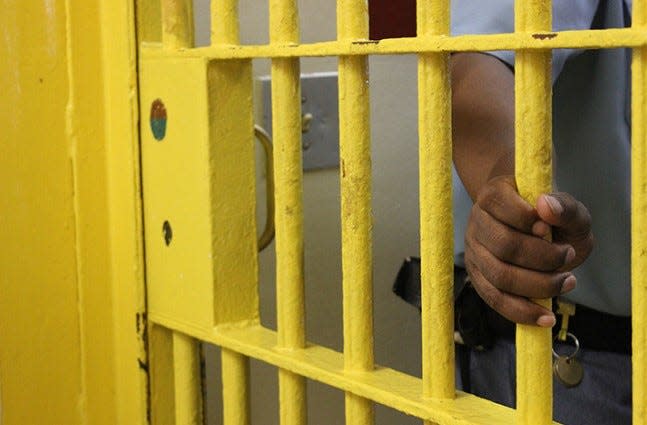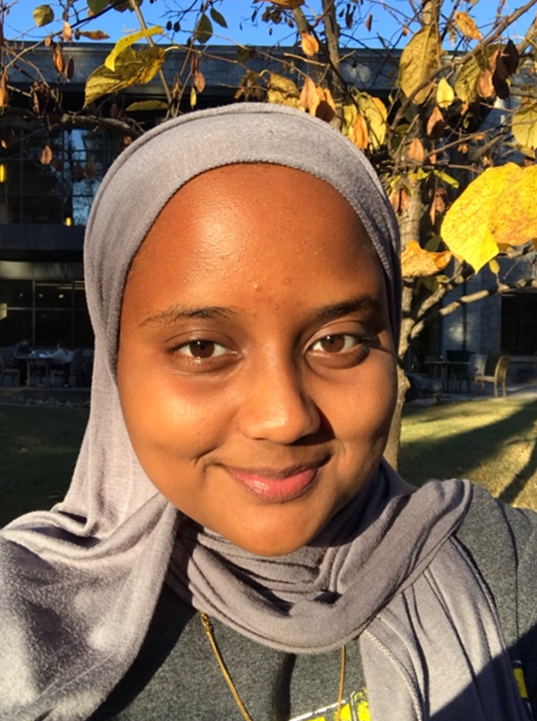Student leader: America's incarceration problem demands policy solutions

This is a column by Ashrakat A. Hassan, a rising senior and student body president at Oglethorpe University. She is a Judge Eugene H. Gadsden Scholar of the Savannah 100 Foundation, Inc., a local non-profit that aims to increase the pool of attorneys who envision a fair and just society for all.
The U.S. holds almost a quarter of the world’s prison population.
How can a nation that only holds 5% of the world’s population incarcerate that many people?
The beginning of that story is the tragedy of slavery and the enslavement of over two million people. From the brutality of their masters to the codification of their suffering, slaves across the country lived as prisoners, working to the death a body that was not theirs.
Even as slavery as an institution ended, laws were instituted to keep formerly enslaved people under the hands of their former masters. From sharecropping to the codification of Black codes that inhibited certain legal rights to the advent and perpetuation of white supremacist groups, slaves were never really free. The ratification of the 13th amendment proved it.
More on modern-day slavery: Federal indictment reveals 'modern-day-slavery' in Georgia
A career-defining epiphany
I went to the Georgia Diagnostic Prison in Jackson, GA, on a school trip. What was a regular field trip turned into an experience that gave me my career-defining epiphany.
I have always wanted to be an attorney. I wanted to command the courtroom. I wanted to help so many members of my community that were stuck between a rock and a hard place with the law.
I just did not know how I was going to help. Between being an immigrant myself and being a Black woman whose formative years were violently met with police brutality and racial injustice, I was tied to two different communities that equally needed good attorneys to join the fray. Yet this trip to Jackson was a wake-up call like no other.
The concrete floors of each wing of the prison were wet with unknown liquids. The air was putrid with sweat and urine. Armed guards at every turn yelled commands at the prisoners like they were animals.
And for good measure, we walked the hall of death row, seeing the notorious killers in their cages as we looked on. I could not help but feel disgusted at the end of the trip.
No matter what they did, what crimes they committed, as human beings they deserve to serve their time under humane conditions. Even then, what are a lot of them serving time for? What devious crimes are they committing? Will they ever get out?
More opinions on criminal justice: Is building more prisons the best way to keep Georgians safe?
An unforgiving system
The 13th amendment abolished slavery and servitude except for the punishment of the crime.
The hundreds of men I saw on that trip are considered slaves of the state. This is an amendment that has not been changed since its ratification in 1865 and continues to be upheld by public and private prisons across the country.
Legislative creations like mandatory minimums incarcerate millions for a standard amount of time for crimes like marijuana possession, based on the circumstances of the offense. Other laws prohibit felons from holding down certain jobs after their sentence or at the very least must note their conviction on job applications.
We live in a system where any crime is unforgivable, and laws are making it harder and harder to get out of prison. Another major assortment of problems is the racial disparity between Black and Hispanic incarcerated individuals in comparison to their white counterparts. There is a significantly larger Black and brown population in prisons. As many problems as there are in our prison system, all hope is not lost.
I hope one day to use my career as an attorney to fight for the wrongly incarcerated.
I will never forget the sullen look on one of the death row inmates' faces as we walked by. So much of his life was behind bars and the U.S. is known to wrongly convict Black people.
Beyond working against capital punishment, one way to solve our carceral problem is by eliminating mandatory minimums. From a strict policy perspective, we spend so much money on inmates yearly. By taking each case at face value and using its circumstances to bring a proportional, humane sentence, we will have a lot fewer folks in prison.

We must help our convicts matriculate back into society. We must fund their education, help them find jobs and get them the medical and psychological help they need should they require it.
Finally, amending the 13th amendment to no longer legalize slavery for the convicted is a good measure. We cannot expect our country to be the land of the free when we were never truly free.
Contact Hassan may at ahassan@oglethorpe.edu.
This article originally appeared on Savannah Morning News: Georgia and America need criminal justice policy reform

